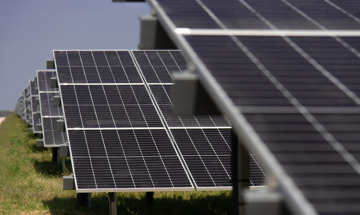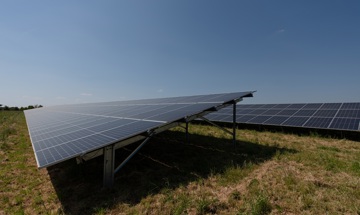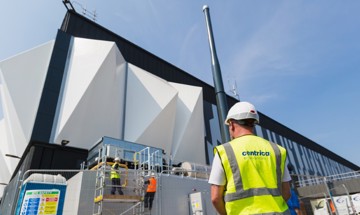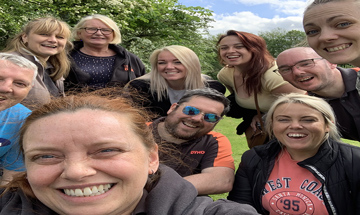This year, the British Gas Energy Trust is 20 years old. Since 2004, it has helped more than 2.2 million people across the UK with their energy bills. We caught up with the CEO, Jessica Taplin, to discuss the amazing work the Trust does to support those in fuel poverty.
If you reflect on 20 years of the British Gas Energy Trust, what are some of the most significant achievements the Trust has accomplished over that time?
So much has been achieved, and a lot of good work is still underway, but a few milestones definitely come to mind:
1. Energy debt relief
This is one of our main grant programmes – and it’s helped around 4 million people across the UK, helping reduce their debt burdens and manage their household finances.
Alongside this, we’re also proud to work with over 40 grassroots charities. These frontline organisations look at a person’s challenges and connect them with other essential services, helping with everything from energy efficiency to mental health support.
Reading feedback, it’s amazing how it really helps turn lives around for the long-term.
2. Crisis support programmes
The Trust’s crisis support programmes – offering emergency grants, fuel vouchers, and white goods – provide timely assistance to those in urgent need, especially in winter when energy demands are high. These programmes help families manage immediate energy costs but also access resources when they need them most. For example, some families might not have fridges to store food safely. That’s where we can help.
It’s also about how we promote energy efficiency. We do that through partnering with local projects to help households adopt sustainable practices and lower energy costs over the long-term.
One of the things we’re always trying to improve is access to help, because we know people can get nervous about asking. So the Trust continues to work with colleagues within Centrica to evolve our support.
The energy crisis feels like it’s not as high profile as it was, but I suspect that the need for the help and support the Trust brings hasn’t diminished. Is that right?
Sadly, the cost of living is still high, and households are still struggling. This is especially true for vulnerable households who are facing incredibly difficult choices, like choosing between heating and eating.
So, whilst the energy crisis might not be as prominent in the headlines, the demand for support from the Trust has not waned. In fact, the Trust has helped more people than ever over the last year – about 64,000 compared to 17-20,000 supported four years ago.
Something we’ve learnt is that some groups are disproportionately affected by fuel poverty. For example, single parent families are about one third of the people we support. Around half of those are carers or have disabilities. Pensioners are also struggling.
This is why it's so important for us to have that blend of money, energy advice, and that person-centred support combined with immediate grant relief.
Additionally, it's quite challenging to reach certain groups, so we've got a compounding issue of digital isolation and a lack of awareness of what assistance is needed. That's one of the reasons we're doing the Post Office pop-ups and going out into communities.
I suppose what our twenty year history has shown is that poverty really requires longer-term solutions. We continue to work to identify those – in fact, that’s been a huge part of our 20th anniversary work over the past six months.
How does the Trust ensure that the funding it receives from British Gas is used effectively to maximise its positive impact?
The British Gas Energy Trust, while solely funded by British Gas, is an independent charity. As such, we have our own Board of Trustees that holds the Executive, myself and the team to account.
We’re a big believer in being an intelligent funder, making sure we’re being efficient with all we do, and using charitable funds to deliver the best outcomes we can. That means we prioritise impact, transparency and accountability to ensure that every pound from British Gas is used effectively.
We’re also data driven - using things like mapping and data targeting to ensure that we’re really focusing our support.
We’re focused on reaching pockets of deprivation which are often neglected so it's vital for us that money and energy advice is part of a grant application process. Working with colleagues at British Gas, we’ve found that people who receive money and energy advice are much less likely to be in debt six to nine months later than those who only receive a debt grant.
Transparency is another thing that’s integral to our operations. We have regular outcome reports that track metrics such as the total funds dispersed and the impact on recipients lives, allowing us to continually refine programmes.
We also openly welcome independent research and analysis of what we do. Recent analysis by Oxford Economics looked into the Trust’s social return on investment, showing that the approach yielded significant lasting benefits. For every pound invested in supporting communities at risk, you're seeing over £6 of social return. This shows that we’re targeting the most vulnerable households – helping them manage their energy debt, build financial resilience, but also improve their energy efficiency to help drive a fairer transition.
How big a challenge is people’s pride when it comes to debt relief, to the extent that it prevents them from seeking help?
A poll of 2000 adults commissioned by British Gas revealed that whilst just under 40% are having challenges managing their bills, over 45% have never sought assistance, from either loved ones or professionals.
These findings really underscore the importance of standing next to someone through their debt journey – and that requires patience and trust.
I've heard from people first hand who are facing anxiety, preventing them from opening a letter. That’s why it’s so important to understand how these letters are written, factoring in how accessibly the information is presented.
This is one of the reasons that we work with trusted partners. We currently fund organisations such as Mencap, and work with independent charity advice organisations. These have established long-term relationships with some of the most vulnerable people, enabling more to come forward and seek help.
Seeking support is not a sign of failure. We want people to be open and honest about their challenges, and in turn, give them personalised support. We believe we're really helping empower individuals to take control of their finances.
What would be your message to people who are in energy debt, regardless of their supplier?
Anyone facing energy debt, general debt, or anyone struggling at the end of the month to pay bills, buy food or pay for their kids clothing – help is available. You don’t have to face it alone. Speak to your energy provider.
That first step is a difficult one. What we find is that people will often come forward and seek help about an issue which isn't the most acute one, but by speaking everything else comes out. Advisors can then help explain those complex issues and help work out what proactive steps need to happen to get people back on track.
You can apply for support through our initiatives through the British Gas Energy Trust, individual and Families Fund, which is open to eligible households, not just British Gas customers, and we can help with up to £2000 for clearing energy debt. More information can be found online on the British Gas Energy Trust's website.
But there's also other support out there, so we would really encourage you to have a look at seeking guidance, through a local advice charity, directly with a support fund or through the person you have that commercial creditor relationship with. It can really help ease the burden.
Why is it important to have schemes like the Post Office pop-up events?
Over a million people visit their Post Office weekly to pay energy bills, bank, collect pensions and more, making it a vital community hub. Our pop-up events allow people to have face-to-face conversations with British Gas and money and energy advice charities in a familiar setting, helping build those relationships that will lead to longer-term support.
Looking ahead, what are the Trust's goals and priorities for the next five years?
In 2024, marking our 20th year, we hosted roundtable events with stakeholders to discuss solutions for alleviating fuel poverty in the long-term, focusing on groups like older people, carers and those with disabilities.
On the 26th of November this year, we presented those findings in the House of Commons. Our board will now then be looking at those approaches to think about how we can develop our strategy over the next five years to help ensure that we continue to support those most affected by fuel poverty.
Over the coming years we want to deepen our connections and enhance our understanding of what others are doing within this space. We already work with housing associations and other charities, and we really want to continue that.
Our role is not as a campaigning organisation, however, we have got the voices, data, insights from those organisations we fund and the people that we've helped support. We can share that with the current government and others as they look towards developing the fuel poverty and energy efficiency strategy.
Thank you for your time Jessica.

Case Study
Secure, Sustainable and Affordable: 2025 Policy Positions
Sustainability

Case Study
Getting Technical: Why market reforms should span both the downstream and upstream electricity market
Customers and Communities

Blog
Chris O'Shea - Changes are needed to make the energy sector simpler and more transparent
Energy crisis

Blog
Chris O'Shea: we will give 10% of British Gas Energy profits away to help our customers
Energy crisis

Blog
How the energy crisis could help businesses prepare for the future
Energy crisis

Case Study
Volunteering at Centrica - supporting causes that matter
Customers and Communities
